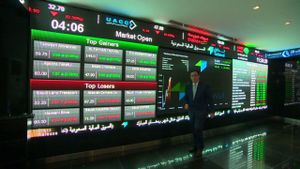The recent German Federal Election has led to significant changes in the political terrain of the country. The Alternative for Germany party (AfD) has emerged as the second largest force within the Bundestag, garnering around 20% of the votes, almost doubling its share from the 2021 elections.
This election marks the rise of the AfD, especially prominent in eastern Germany where it has become the strongest political force. During the night of the election, party leader Alice Weidel proudly declared the outcome, emphasizing, 'They wanted to halve us, but the opposite has happened!'
With this dramatic shift, it appears the longstanding consensus against the AfD may be challenged. Weidel reaffirmed the party’s readiness to ally with the conservative Christian Democratic Union (CDU) and its Bavarian counterpart, the Christian Social Union (CSU). 'Our hand will always remain outstretched for participation in government, to implement the will of the people,' she indicated.
Olaf Scholz, the incumbent chancellor and candidate from the Social Democratic Party (SPD), acknowledged the grim results for his party, predicting they would lead to serious introspection. He remarked, 'This is a bitter election result for the Social Democratic Party. It is also an electoral defeat.'
Meanwhile, Friedrich Merz of the CDU expressed confidence, stating, 'We, the CDU and CSU, the Union, won this 2025 federal election!' His party is front-running with about 28.5% of the votes, which still necessitates coalition negotiations as absolute majorities have historically eluded modern German politics.
The election’s themes were clear, with migration policy and economic stability being top of mind for German voters. The rise of the AfD, characterized by its anti-immigration stance, is seen as alarming by many. Scholz echoed those concerns, reflecting on what the AfD’s success indicates for the future. 'The fact the AfD gets such election results must never be something we accept,' he stated emphatically.
The dynamics of coalition building become pivotal as no single party has secured enough seats to govern alone. The possibility of coalition governments looms, yet the nature of such alliances is complex and fraught with contention.
Merz has previously remained against including the AfD within any coalition, citing ideological differences. He noted, 'You want the opposite of what we want and that's why there will be no cooperation.' This approach aims both to establish boundaries around mainstream party policies and keep far-right influence at bay.
There are fears about how the changing political tide might impact Germany's relations within Europe and its role on the international stage. The incoming CDU-led government faces mounting pressure to normalize relations with neighbors and boost military aid to Ukraine amid increasing tensions.
Critics of the CDU, including various European Union partners, have expressed skepticism about Merz’s capability to embrace calls for greater involvement in international matters, especially concerning defense spending and climate policies. Already, there is dialogue surrounding raising Germany's military expenditure to 3% of GDP, particularly to strengthen NATO ties.
Merz's approach contrasts with his predecessor Olaf Scholz's, who faced criticism for perceived delays and indecisiveness during his term. Analysts suggest Merz intends to adopt a more proactive stance both domestically and internationally, framing the immediate challenge as getting the new government up and running quickly.
Part of this urgency derives from the shifting geopolitical climate, especially with the changing U.S. leadership under President Donald Trump. Trump's return to power and his skepticism toward multilateral alliances prompts Germany to rethink its foreign policy strategies.
Throughout the election period, the backdrop of U.S. foreign policy loomed large, as Vice President JD Vance's statements supportive of far-right movements garnered attention. The potential for contentious interactions between Germany and the U.S. under Trump could complicate international cooperation on issues like defense and climate.
A significant challenge for the coalition government will be addressing the anxiety surrounding the AfD's rise. With instances of protest against the party's extreme views, many citizens fear the normalization of far-right politics could undermine democratic integrity.
Despite their electoral success, the AfD's coalition prospects appear slim as mainstream parties maintain their distance, calling them 'movement pariahs’ of German politics. Their anti-EU rhetoric remains particularly divisive, with calls to exit the Eurozone and abandon military support to Ukraine posing stark contrasts to the established political consensus.
Merz's CDU has indicated intentions to bolster military support for Ukraine, sending messages of solidarity against Russia and challenging the AfD's position on such matters. He stressed, 'I approach this with utmost respect, and I know it will not be easy.'
Future relations within the EU will be highly contingent on how quickly and efficiently the new CDU-led government can reestablish itself and tackle pressing issues ranging from economic stability to global security. Losses for the SPD and the Greens signify shifts among the electorate, underscoring the heterogeneous political sentiments currently brewing.
The coming weeks will likely see intense negotiations to formulate the next coalition agreement, highlighting the importance of crafting policies reflecting the populace's desires and tackling the systemic challenges facing Germany and Europe as a whole. Experts anticipate tense discussions, epitomizing the balancing act between upholding democratic values and responding to populist sentiments.



